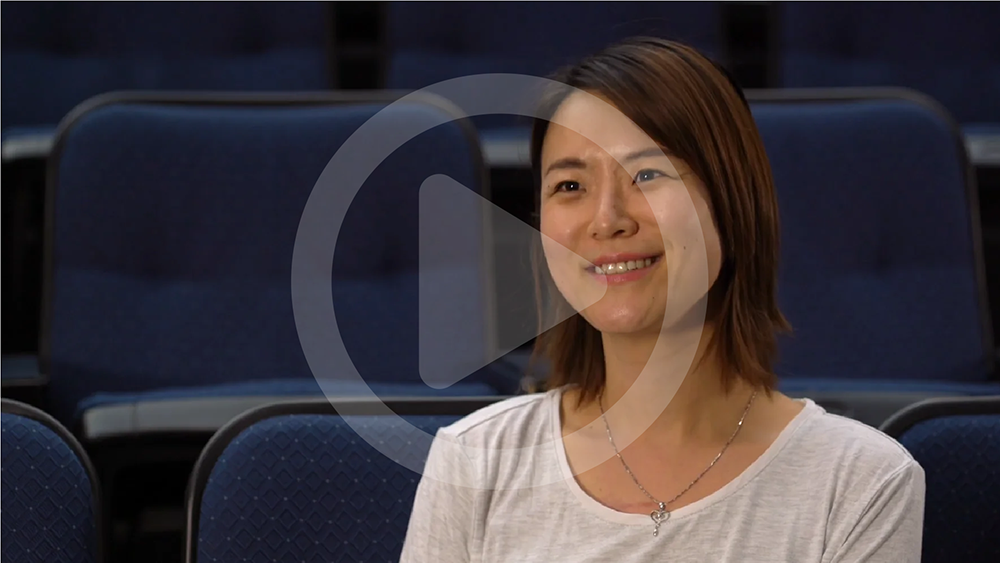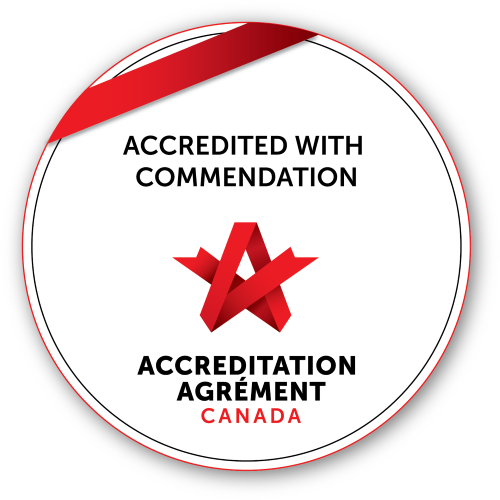Diagnostic Cytology Program

Program at a glance:
Credential Earned: Advanced Diploma
Program Length: 2 years (Full-time)
Program Delivery: Hybrid
Start Date: September 2025
Application Deadline: February 1, 2025
Program Code: MICH CY222
About the Program
Join the fight against cancer
Students in the Diagnostic Cytology program learn to detect and diagnose precancerous cellular changes, many different types of cancer and clinically significant infections.
Michener offers one of the only Diagnostic Cytology programs in Canada. Graduates are eligible to write the national certification examination conducted by the Canadian Society for Medical Laboratory Science (CSMLS) . Successful completion qualifies the graduate to seek employment across Canada; those wishing to practise in Ontario must also register with the College of Medical Laboratory Technologists of Ontario (CMLTO) .
The Diagnostic Cytology program is accredited by Accreditation Canada . Accreditation is a quality improvement process that ensures educational programs meet national standards and that students acquire the knowledge, skills and competencies for safe and effective care at entry to practice.
“The Diagnostic Cytology program harmonizes a mixture of theoretical concepts with practical application guided by fantastic instructors.”
Take a Diagnostic Cytology Virtual Tour
Apply now on ontariocolleges.ca
Admission Requirements
About the Profession
Cytotechnologists play a crucial role in the fight against cancer by examining human cells and preparing reports on any abnormal results for a pathologist who will make a definitive diagnosis based upon the Cytotechnologist’s initial findings. After successful completion of the national certification exam, a working Cytotechnologist will evaluate microscope slides marking areas showing significant changes. In this profession, a Cytotechnologist may spend up to seven hours per day working at the microscope.
Following standardized reporting terminology, Cytotechnologists detect and diagnose precancerous cellular changes by looking at specimen slides taken from pap smears, the lung, bladder, lymph nodes, thyroid gland and other parts of the body. Abnormal gynecological cases and all non-gynecological cases will be sent to a pathologist for final diagnosis.
Most Cytotechnologists work in hospitals or community laboratories, but they may also find employment in areas such as laboratory management, research, education, sales and marketing and technical consulting.
Though there is limited direct contact with patients, Cytotechnologists play a vital role in the health care team.
What Will I Study?
You will develop a broad knowledge base and practical skills that will enable an entry level Cytotechnologist to safely prepare specimens for diagnostic interpretation, perform the microscopic interpretation of those specimens and issue reports according to institutional policies and professional standards. You will also become an integral member of the health care team who will share knowledge that is essential to the diagnosis and treatment of disease and will collaborate with other professionals in providing effective patient care.
You will learn to become responsible and accountable for your professional acts and practices according to current standards of practice as well as laws and regulations governing the Cytology profession.
Please see detailed course descriptions on the Diagnostic Cytology Curriculum page.
Clinical Education
Length: 24 weeks
Start: August
End: February
Note: dates for Fall 2023 semester are tentative and subject to change based on timing of CSMLS exam.
You will be assigned to a clinical placement site(s) through Michener’s Office for Clinical Education. This process begins with an information session in the first semester of your program.
As clinical education is a major component of all Michener programs, our affiliated clinical sites are integral to your education. They include teaching and community hospitals and private laboratories in Canada. Working closely under the supervision of Cytotechnologists, you will have the opportunity to integrate knowledge and skills into practice during the clinical phase of your program. Clinical placements give you hands-on experience in work environments and the opportunity to network with potential employers.
For more information about Clinical Education, please see Michener’s Clinical Education Model page.
Textbooks
Scholarship & Bursaries
Tuition
